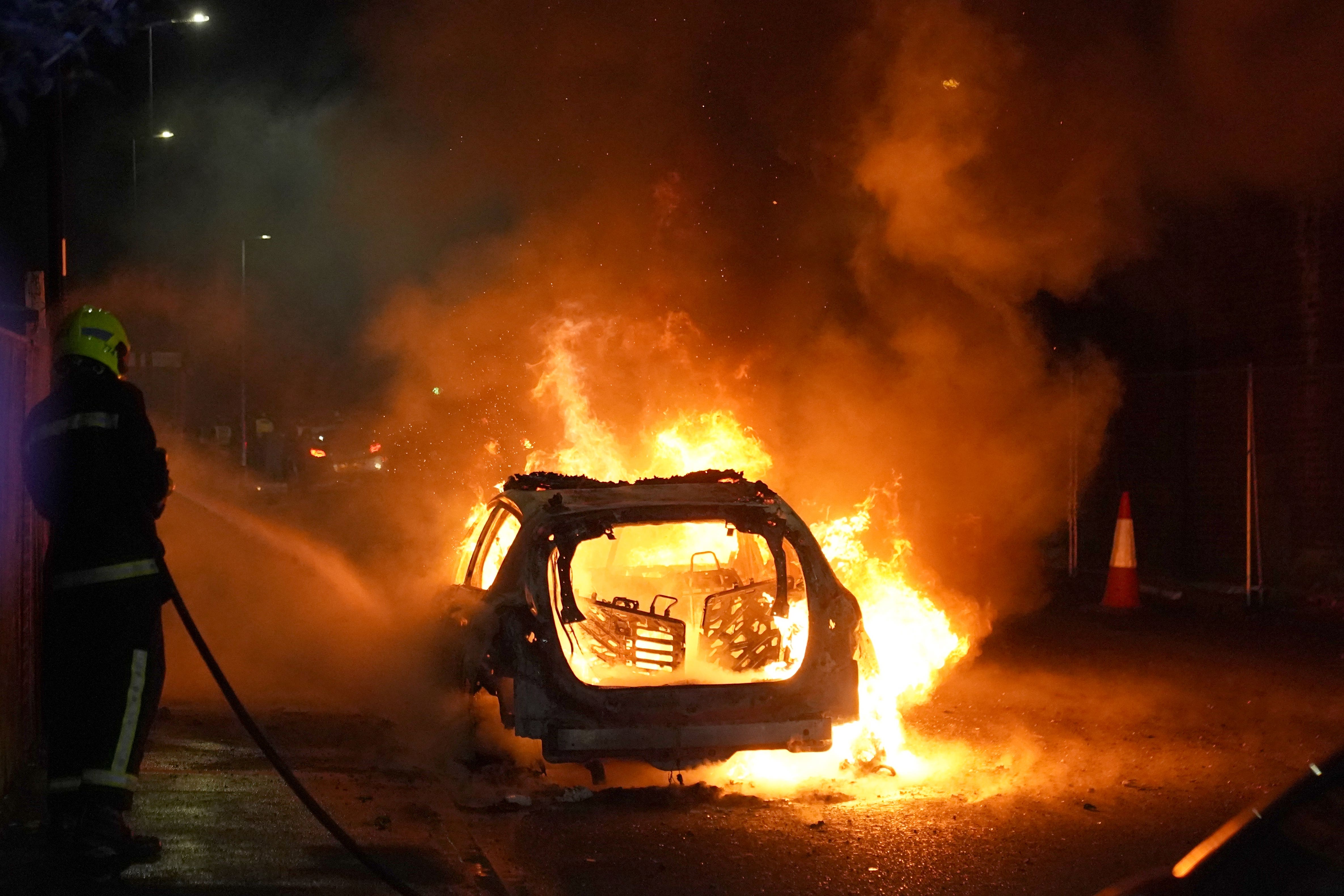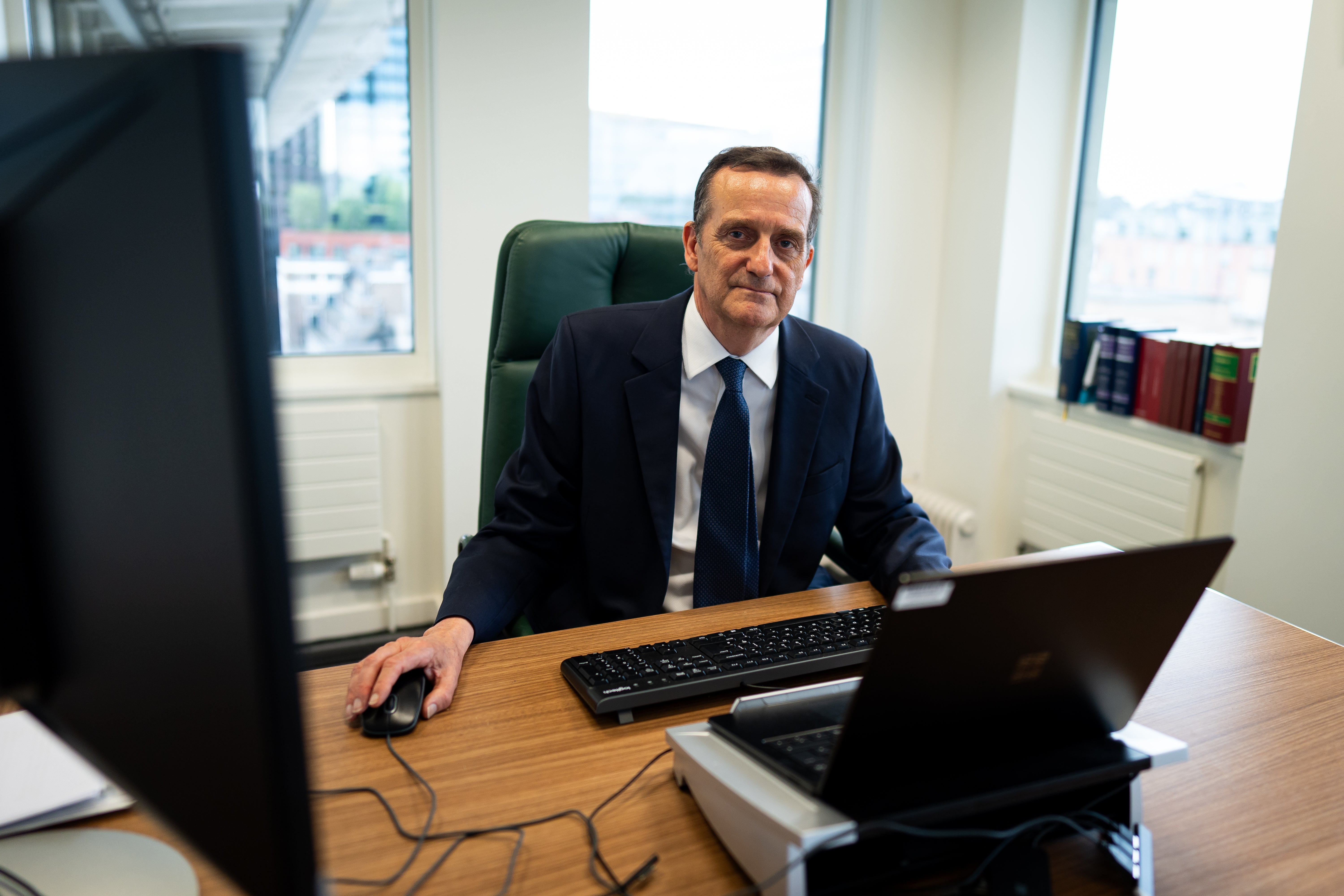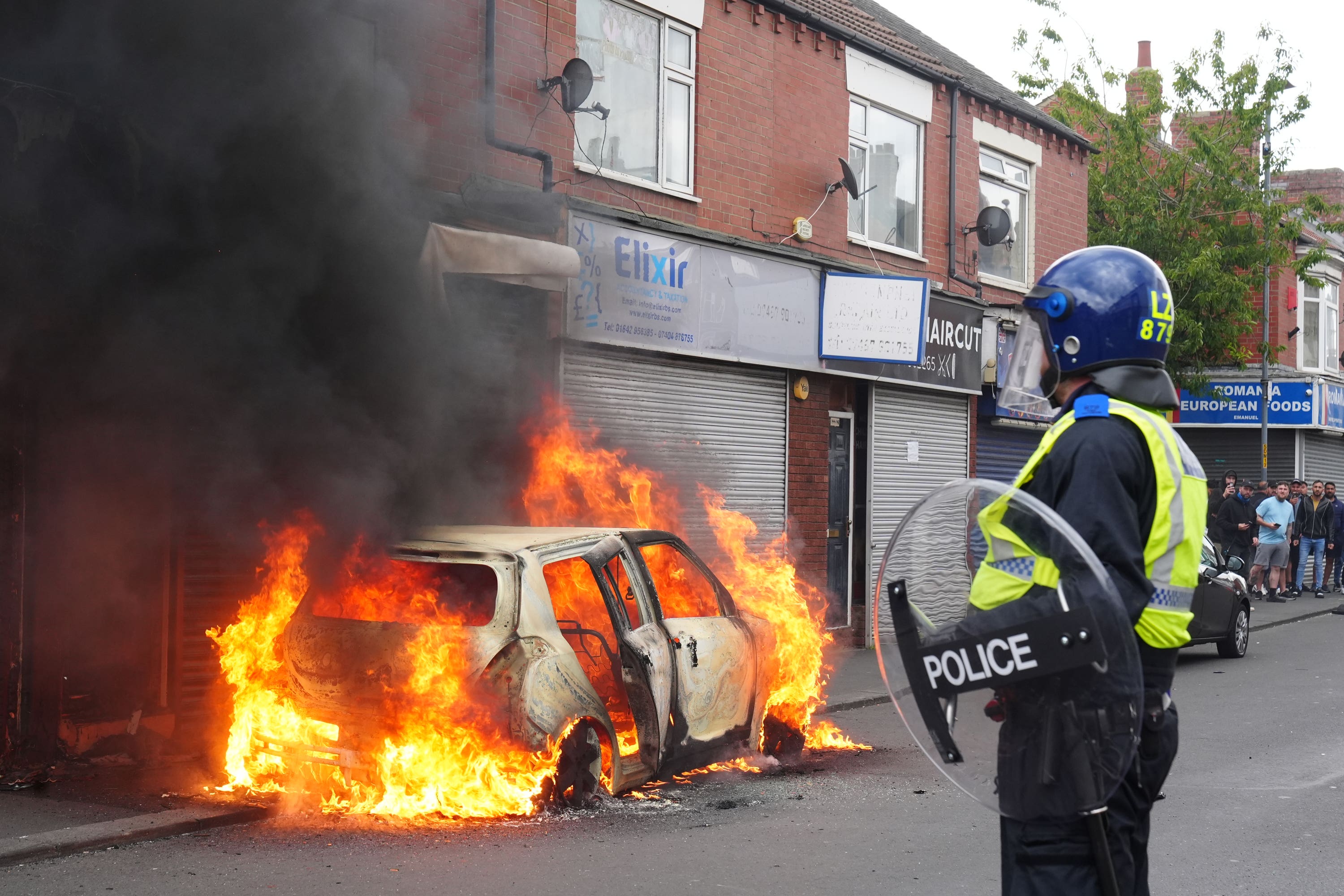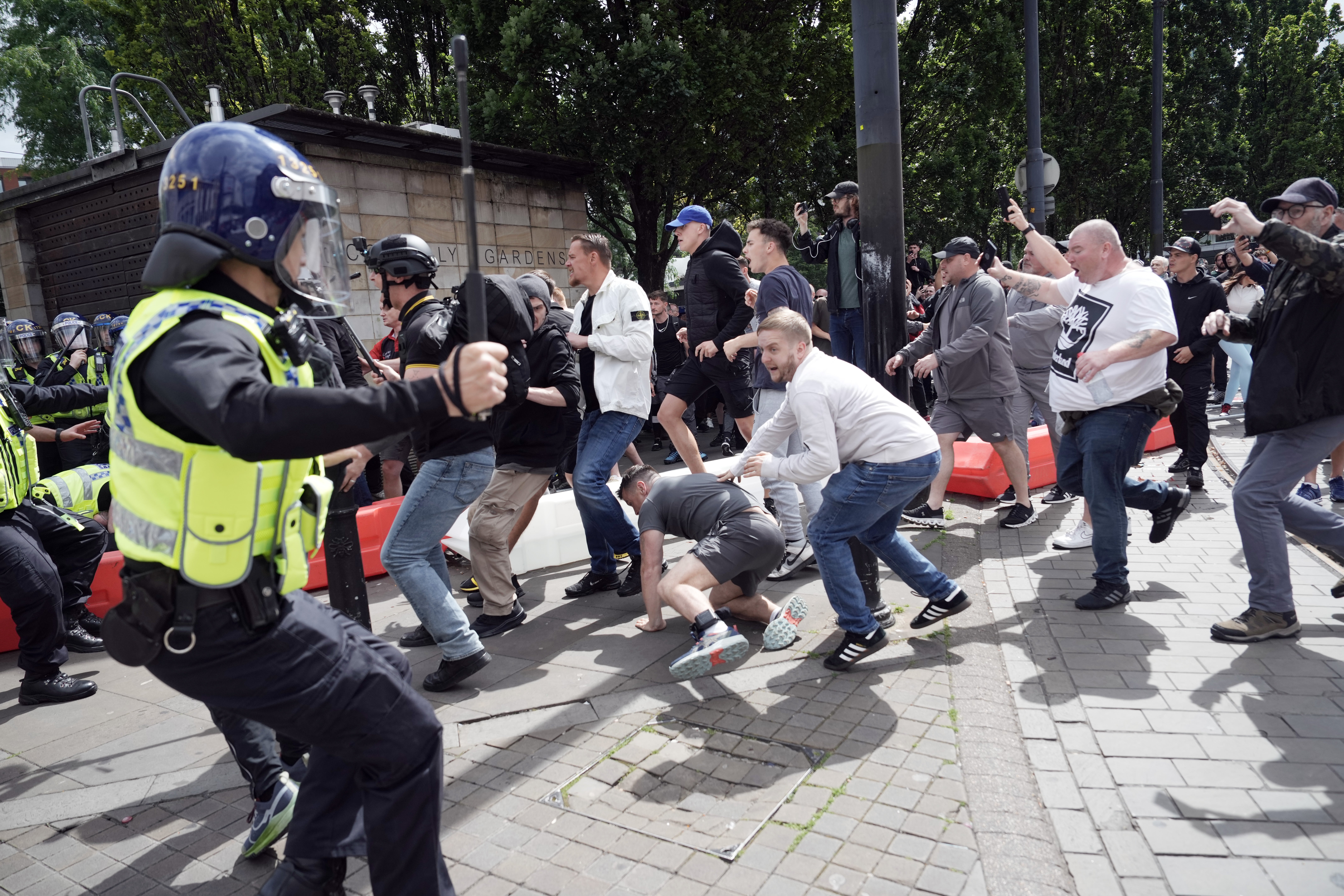Boy, 14, caught up in UK riots let off by police because his parents told him off
Director of public prosecutions Stephen Parkinson says some families viewed taking part in the disorder as a leisure activity

A 14-year-old boy caught up in the post-Southport riots was so sternly told off by his parents that police and prosecutors decided to take no further action.
Director of public prosecutions (DPP) Stephen Parkinson said the anger of the mother and father, who marched their son to a police station after discovering he had taken part in the disorder, was more effective than any action the criminal justice system would have taken.
He said some families viewed taking part in the disorder as a leisure activity.
“We’ve come across instances, anecdotally, of families regarding it as a day out, to go and just join in the disorder.
“But conversely, we had an instance where a family marched their 14-year-old to the police station, having seen on social media that that individual had been involved in the disorder,” he told PA.
“And actually, we took the decision that the wrath that had been visited on that child by his parents was more effective than anything the criminal justice system could deliver.
“And so we took no further action.”

Mr Parkinson, who took up the post as head of the Crown Prosecution Service (CPS) in November last year, said prosecutors are “very alive” to the risk of children being criminalised unnecessarily, after becoming involved in the riots which erupted in some parts of the UK in the summer, in the wake of the Southport stabbings.
One of the youngest defendants was a 12-year-old boy, who hit the headlines because his mother chose to fly to Ibiza for a holiday the day before he was due in court.
District Judge Joanne Hirst ordered her to appear at Manchester Magistrates’ Court after her sunshine break, where she ordered her to pay £1,200 compensation and go on a parenting course.
The boy was given a 12-month referral order after admitting two counts of violent disorder, a measure designed to prevent him from committing further crimes.
“Sometimes the state, I’m afraid, has to intervene,” Mr Parkinson said.
“And the consequence of an intervention like the 12-year-old is a referral order, which would then mean that rehabilitation can take place and we can divert them from the path of criminality.
“That’s the objective with youngsters, not to criminalise them, it’s to put them on the right path.
“We have people who are specially trained around youth work, because it’s important we do make the right decisions.”
According to data collated by PA from information provided by police and prosecutors, so far more than 600 people have been charged over the disorder.
Of these, more than 530 are adults and more than 75 are children under the age of 18, about 13 per cent of the total.

“It’s very troubling that youngsters have been being sucked into this and, you know, I’m fully alive to the consequences of a conviction on someone’s life,” Mr Parkinson went on.
“So we do have to think very carefully about the decisions we take.
“But sometimes the state does need to intervene, not to mark criminality with a record, unfortunately that’s a consequence, but in order to open the possibility of diverting away from the future path.”
Mr Parkinson said “investigations have been opened” into whether any alleged criminality had been carried out by far-right groups during the riots.
The DPP said the first sentence handed down for violent disorder in connection with the unrest “probably sent shockwaves”.
He told PA: “I think a couple of days before Judge [Andrew] Menary’s sentence on the Wednesday in Liverpool, I said I think the disorder is coming to an end.
“I said that because I knew the first sentence was coming up and I knew what would happen – and I think that that first sentence probably sent shockwaves.
“It was the day when there was a substantial police presence, there were a lot of counterprotests, but in the middle of the afternoon Judge Menary passed that sentence, and probably social media helped us there, because those riots just didn’t happen.”
On how the prosecutions unfolded, Mr Parkinson said the CPS were “proud of the way we responded”.
He said: “They were relatively easy cases to prosecute – I couldn’t see why we should wait and I wanted to get that message out, I know I did get that message out.
“Generally, I think we’re quite proud of the way we responded, to be honest.”
He added that the CPS would “review” their part in the disorder prosecutions and would “reflect on lessons to be learned”.

The highest priority for the CPS under Mr Parkinson over the coming year is tackling delays in cases progressing, so justice is delivered more quickly, as well as providing better support for victims in a bid to cut the number who withdraw from prosecutions.
Later this year, victims of rape and serious sexual offences will start to be given a dedicated point of contact at the CPS and offered meetings at court, in the hope it will improve their experience of the justice system and boost their confidence in the process.
Since becoming DPP in November, Mr Parkinson has also sought to boost the number of in-house lawyers who work directly for the CPS, amid difficulties finding self-employed barristers and solicitors available to prosecute cases, meaning some have not been able to proceed as planned.
Changes introduced meant newly qualified CPS lawyers were allowed to work in court more quickly after training and gain more experience – something which many were previously leaving the body to do, as a self-employed barrister at private chambers instead.
The “significant” move has increased the number of in-house advocates by 31 per cent as more decide to stay working with the CPS, Mr Parkinson said, and it is hoped this could immediately help reduce delays in cases going through crown courts.
Bookmark popover
Removed from bookmarks